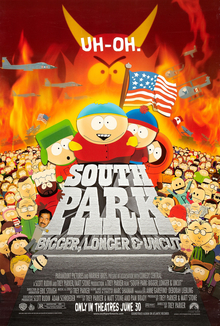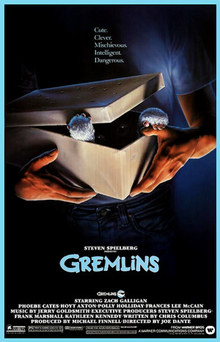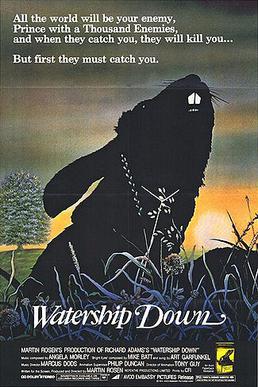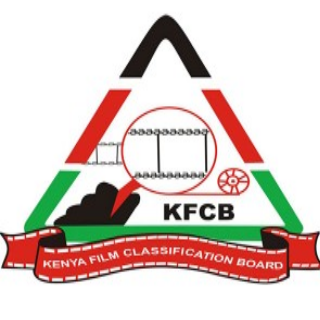The Motion Picture Associationfilm rating system is used in the United States and its territories to rate a motion picture's suitability for certain audiences based on its content. The system and the ratings applied to individual motion pictures are the responsibility of the Motion Picture Association (MPA), previously known as the Motion Picture Association of America (MPAA) from 1945 to 2019. The MPA rating system is a voluntary scheme that is not enforced by law; films can be exhibited without a rating, although most theaters refuse to exhibit non-rated or NC-17 rated films. Non-members of the MPA may also submit films for rating. Other media, such as television programs, music and video games, are rated by other entities such as the TV Parental Guidelines, the RIAA and the ESRB, respectively.
A motion picture content rating system classifies films based on their suitability for audiences due to their treatment of issues such as sex, violence, or substance abuse; their use of profanity; or other matters typically deemed unsuitable for children or adolescents. Most countries have some form of rating system that issues determinations variously known as certifications, classifications, certificates, or ratings. Age recommendations, of either an advisory or restrictive capacity, are often applied in lieu of censorship; in some jurisdictions movie theaters may have a legal obligation to enforce restrictive ratings.

South Park: Bigger, Longer & Uncut is a 1999 American adult computer-animated musical comedy film based on the animated sitcom South Park. The film was directed by series creator Trey Parker from a screenplay co-written with series co-creator Matt Stone and Pam Brady; and stars Parker, Stone, Mary Kay Bergman, and Isaac Hayes, all of whom reprise their roles from the series, with George Clooney, Eric Idle, and Mike Judge in supporting roles. The plot follows Stan, Kyle, Cartman, and Kenny as they sneak into an R-rated film starring the Canadian comedy duo Terrance and Phillip, after which they begin swearing. When the consequent moral panic culminates in the United States declaring war on Canada, Stan, Kyle and Cartman take it upon themselves to save Terrance and Phillip from execution, while Kenny tries to prevent a prophecy involving Satan and Saddam Hussein's intent to conquer the world.

Gremlins is a 1984 American black comedy horror film directed by Joe Dante, written by Chris Columbus, and starring Zach Galligan, Phoebe Cates, Hoyt Axton, Polly Holliday, and Frances Lee McCain, with Howie Mandel providing the voice of Gizmo, the main mogwai character. It draws on legends of folkloric mischievous creatures that cause malfunctions—"gremlins"—in the British Royal Air Force going back to World War II. The story follows a young man who receives a strange creature as a pet, which then spawns other creatures who transform into small, destructive, mischievous monsters that all wreak havoc on a whole town on Christmas Eve.
The Canadian Home Video Rating System (CHVRS) is a voluntary rating classification system applied to home video products such as VHS and DVDs. It is administered by the Motion Picture Classification Corporation of Canada, a subsidiary of the Motion Picture Association – Canada (MPA–C). Ratings are "averaged" from those assigned by participating provincial film boards: Alberta, British Columbia, Manitoba, Maritimes, Ontario and Saskatchewan and applied by the distributor to home video packaging.
Television content rating systems are systems for evaluating the content and reporting the suitability of television programs for minors. Many countries have their own television rating system and countries' rating processes vary by local priorities. Programs are rated by the organization that manages the system, the broadcaster, or the content producers.

Watership Down is a 1978 British animated adventure-drama film, written, produced and directed by Martin Rosen and based on the 1972 novel by Richard Adams. It was financed by a consortium of British financial institutions and was distributed by Cinema International Corporation in the United Kingdom. Released on 19 October 1978, the film was an immediate success and it became the sixth-most popular film of 1979 at the UK box office.

Spider Baby: or, the Maddest Story Ever Told is a 1967 American black comedy horror film, written and directed by Jack Hill. It stars Lon Chaney Jr. as Bruno, the chauffeur and caretaker of three orphaned siblings who suffer from "Merrye Syndrome", a genetic condition starting in early puberty that causes them to regress mentally, socially and physically. Jill Banner, Carol Ohmart, Quinn Redeker, Beverly Washburn, Sid Haig, Mary Mitchel, Karl Schanzer and Mantan Moreland also star.
The Maritime Film Classification Board is a government organization responsible for reviewing films and granting film ratings in New Brunswick, Nova Scotia and Prince Edward Island.
Emancipation of minors is a legal mechanism by which a minor before attaining the age of majority is freed from control by their parents or guardians, and the parents or guardians are freed from responsibility for their child. Minors are normally considered legally incompetent to enter into contracts and to handle their own affairs. Emancipation overrides that presumption and allows emancipated children to legally make certain decisions on their own behalf.

Mysterious Skin is a 2004 coming-of-age film written and directed by Gregg Araki, adapted from Scott Heim's 1995 novel of the same name. The film tells the story of two pre-adolescent boys who both experienced sexual abuse as children, and how it affects their lives in different ways into their young adulthood. One boy becomes a reckless, sexually adventurous sex worker, while the other retreats into a reclusive fantasy of alien abduction.
The TV Parental Guidelines are a television content rating system in the United States that was first proposed on December 19, 1996, by the United States Congress, the television industry and the federal communication commission (FCC), and went into effect by January 1, 1997, on most major broadcast and cable networks in response to public concerns about increasingly explicit sexual content, graphic violence and strong profanity in television programs. It was established as a voluntary-participation system, with ratings to be determined by the individual participating broadcast and cable networks.
The Asylum is an American independent film company and distributor that focuses on producing low-budget, direct-to-video films. It is notorious for producing titles that capitalize on productions by major studios, often using film titles and scripts very similar to those of current blockbusters in order to lure customers. These titles have been dubbed "mockbusters" by the press. Its titles are distributed by Echo Bridge Home Entertainment, GT Media, and as of 2015, Cinedigm.

The Movie and Television Review and Classification Board is a Philippine government agency under the Office of the President of the Philippines that is responsible for the classification and review of television programs, motion pictures and home videos.

The British Board of Film Classification is a non-governmental organisation founded by the British film industry in 1912 and responsible for the national classification and censorship of films exhibited at cinemas and video works released on physical media within the United Kingdom. It has a statutory requirement to classify all video works released on VHS, DVD, Blu-ray, and, to a lesser extent, some video games under the Video Recordings Act 1984. The BBFC was also the designated regulator for the UK age-verification scheme which was abandoned before being implemented.
The Australian Classification Board is an Australian government statutory body responsible for the classification and censorship of films, video games and publications for exhibition, sale or hire in Australia. The ACB was established in 1970 and was once part of the Office of Film and Literature Classification (OFLC), which was dissolved in 2006. The Department of Communications and the Arts provided administrative support to the ACB from 2006 until 2020, when it was merged into the 'mega department' of the Department of Infrastructure, Transport, Regional Development and Communications. Decisions made by the ACB may be reviewed by the Australian Classification Review Board. The ACB now operates under the Commonwealth Classification Act 1995. The ACB is made up of a director, a deputy director, and three other board members, appointed by the government for three- or four-year terms, and temporary board members. The ACB is located in Sydney, New South Wales.
The Australian Classification Review Board is a statutory censorship and classification body overseen by the Australian Government. The corporate body is responsible for reviewing classification decisions made by the Australian Classification Board concerning films, video games and publications for exhibition, sale or hire in Australia. Review decisions need to be initiated by an appeal from a previous applicant, most commonly referred to as "aggrieved party", or a Federal or State Attorney-General.
Shiloh is a media franchise that includes four novels and three films.
Media regulation in the Republic of Singapore is carried out by the Info-communications Media Development Authority (IMDA) and effected by various laws.

The Kenya Film Classification Board is a state corporation that operates under the Government of Kenya whose mandate is to "regulate the creation, broadcasting, possession, distribution and exhibition of films by rating them." The Board was founded in 1963 with the commencement of the laws outlined in the Films and Stage Plays Act of 1962 and has since involved itself in the rating and classification of films and television programmes. More recently, it has caused controversy by banning several films, such as the American box office success The Wolf of Wall Street, the Kenyan film Stories of Our Lives, Rafiki, and the 2015 film Fifty Shades of Grey based on the novel of the same name. The Board has also regulated television content, including advertisements.









